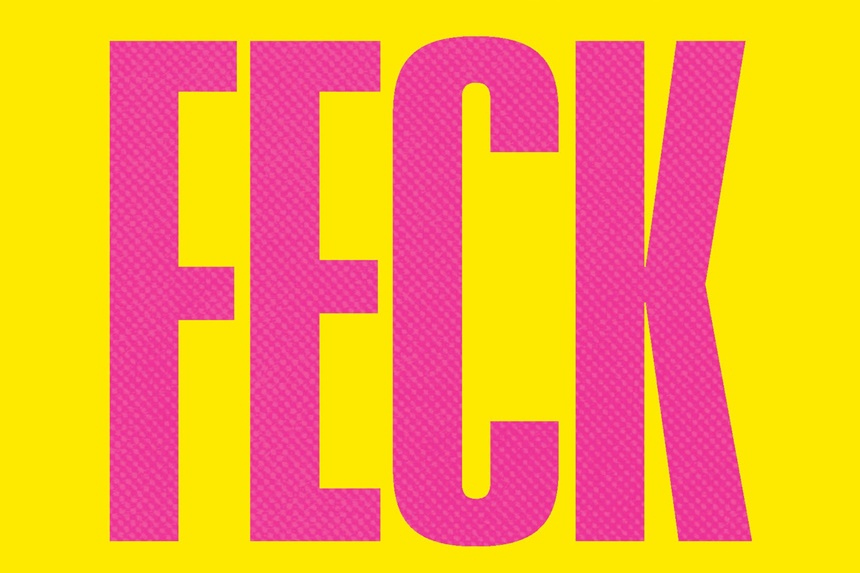What the world needs now is FECK, sweet FECK.
FECK is an acronym for Forgiveness, Empathy, Compassion and Kindness. Its creator, Chaz Ebert, dearly hopes these values can go viral at a time when the country seems more divided than it has been in decades.

At the heart of It’s Time to Give a FECK: Elevating Humanity through Forgiveness, Empathy, Compassion, and Kindness, are inspiring stories of people who put these values into action to make their corners of the world a better place, as well as Ebert’s own compelling reminiscences that, she writes, personalize how “contributions in the name of love are what move our world forward, toward a place of greater connection and unity.”
To quote the tagline from the film, That’s Entertainment, “Boy, do we need it now.”
Ebert, publisher of RogerEbert.com, and wife of the Pulitzer Prize-winning film critic from 1992 until his death in 2013, spoke with The Saturday Evening Post about how the FECK principles have shaped her life; she also pays loving tribute to her late husband, who had a revelatory incident with, of all people, comedian Rob Schneider, that represents the essence of her book.

Donald Liebenson: What was the genesis of this book?
Chaz Ebert: This book is an extension of work Roger and I did together. Roger used to say, “Movies are like a machine that generates empathy.” We both felt strongly that cinema gives you a very good visceral experience of what it is like to be another person of a different age, gender, ethnicity, religion; how it feels to be a person different than you. Roger felt it was one of the most noble things cinema could do.
DL: Where did FECK come from?
CE: Toward the end of Roger’s life, we talked a lot about empathy. I added the other principles. I saw that putting yourself in the shoes of another person and empathizing with them could cause you to feel compassion for them and make you want to help alleviate their pain. And kindness is the action you take that puts compassion into action. I added forgiveness after seeing a film I invited to the annual Ebertfest Film Festival in 2016. Stephen Apkon and Andrew Young co-directed Disturbing the Peace. It was a film they shot in Israel about Israelis and Palestinians who made a joint pact to put down their weapons and initiate a movement for peace. They formed a group called Combatants for Peace. I was totally blown away by it, as it made me realize that forgiveness needs to be an essential part of the conversation.
DL: There are many wonderful and inspiring stories in the book about ordinary people acting extraordinarily. But there’s one famous story involving Roger that is not in the book, but it exemplifies all the values you talk about. It concerns his review of Rob Schneider’s film, Deuce Bigelow: European Gigolo. Please tell it. It’s one of my favorites.
CE: Oh, my God. That should be in the book!
DL: Maybe you can include it in the sequel.
CE: [Laughs] Roger and the flowers. It makes me want to cry. Roger had a dustup with Rob Schneider over a bad review of Deuce Bigelow: European Gigolo written by the critic for The Los Angeles Times. Rob wrote an open letter to Variety blasting said critic in part for never having won a Pulitzer Prize. Roger came to the critic’s defense in what became one of his most famous reviews. He concluded the no-star review by saying that as chance would have it, he had won the Pulitzer Prize and felt qualified to say, “Mr. Schneider, your movie sucks.” It was not pretty. When Roger got sick and was in the hospital, Rob sent him a beautiful bouquet of flowers with a lovely note signed, “Your least favorite movie star.” I said, “Roger, you’re not going to believe who this is from.” Roger wrote a moving essay in which he said that the flowers did not change his opinion of the movie, but that he appreciated Rob’s kind and generous gesture and the reminder that, in the great scheme of things, a review doesn’t mean much. After Roger passed away, I reached out to Rob and asked if I could interview him. He said yes, and it was a really beautiful interview. I just believe in the goodness of people. I learned that Rob was a Zen Buddhist and that helped him to get through that period.
DL: During Roger’s debilitating illness, was your faith tested?
CE: I have a surprise answer for that: No. There was no anger at God because of Roger. When his cancer returned, he said to me, “Maybe it’s a good thing I got cancer,” which knocked me for a loop. I told him, “I need you to finish that sentence.” He said, “Because I get to see the things that are good in my life, and I have the chance to be introspective about them.” He always found the good in things.
We were optimistic. We thought he had a couple of years to live. On the day he passed away, I was pleading with God and the universe for more time, but I just had to accept it. He was ready, and a wave of peace washed over me. There was no anger and no bargaining. Roger would say, “We all must go at some point. Why not me?”
DL: Which of your FECK principals, if any, do you find personally challenging?
CE: I do have a problem sometimes with forgiveness, but you do have to forgive. One of the people who really taught me about forgiveness (in addition to the subjects of the Disturbing the Peace film) was South African Archbishop Desmond Tutu. I met him in South Africa and thought he was remarkable. We invited him to Springfield, Illinois to accept the Lincoln Presidential Foundation’s Lincoln Leadership Prize. When we visited the Abraham Lincoln Library, we were invited into the vault to look at the original handwritten letters of Abraham Lincoln (after donning protective gloves). I watched Archbishop Tutu; there were so many emotions dancing over his face as he read the letters. He told me, “I realize President Lincoln went through some of the same things President Mandela and I went through when we put together the Truth and Reconciliation Commission” (to deal with what happened in South Africa under apartheid). He said that he lost a lot of friends because they did not want us to forgive people for atrocities committed under the apartheid regime. But you had to give the confessors a path to redemption, and you had to forgive. Without forgiveness you remain a prisoner. You don’t give yourself a chance to let in the light.
I admired how Roger forgave people. I remember someone borrowed a large sum of money from him and promised to pay it back. We would see this person make large purchases, when you’d think they would use at least some of that money to pay Roger back first. This was a person who had been in Roger’s life a long time. Roger chose to see the totality of the person rather than just that piece. He forgave and forgot. It wasn’t an issue for him.
DL: [Joking] I can’t believe Gene Siskel did that.
CE: [Laughs] I’m really glad you said that because one of the beautiful things that I was able to see was Gene and Roger’s relationship grow from bitter rivals into a love like brothers. And just to be clear, Gene was not the person who got the loan from Roger.
DL: It’s not one of your four pillars, but throughout the book, you talk about the importance of community.
CE: It’s a very important issue. It’s another reason I wrote the book. The FECK principles bring us together as a community. During the pandemic I saw how isolated people were — from young people unable to be with friends to elderly people who were cut off from their family and support system. Community helps to enlarge your heart. There is scientific evidence that community helps people to heal quicker, have better mental health, and live longer.
DL: This is the most obvious question in the history of obvious questions, by why now to write a book about the importance of forgiveness, empathy, compassion, and kindness?
CE: I would love to take this book and a few people I wrote about to Congress so they could meet someone like Candice Payne, who during the polar vortex in Chicago spent her money on hotel rooms to get homeless people off the street during the dangerous cold. I would love to meet with members of the House and Senate and just say, “Why can’t we work together?” I know there are families where someone watches Fox News and another watches MSNBC and things get so heated they don’t even want to have Thanksgiving together. We can’t go on like that.
Become a Saturday Evening Post member and enjoy unlimited access. Subscribe now




Comments
Well Donald, a great interview. I hope Ms. Ebert’s message gets out there. It’s certainly needed. Whether it will be heeded in this broken day and time remains to be seen. For now, I’d say she’s ahead of her time. The title certainly stands alone in being catchy, and the feature otherwise probably more suited to being here online.